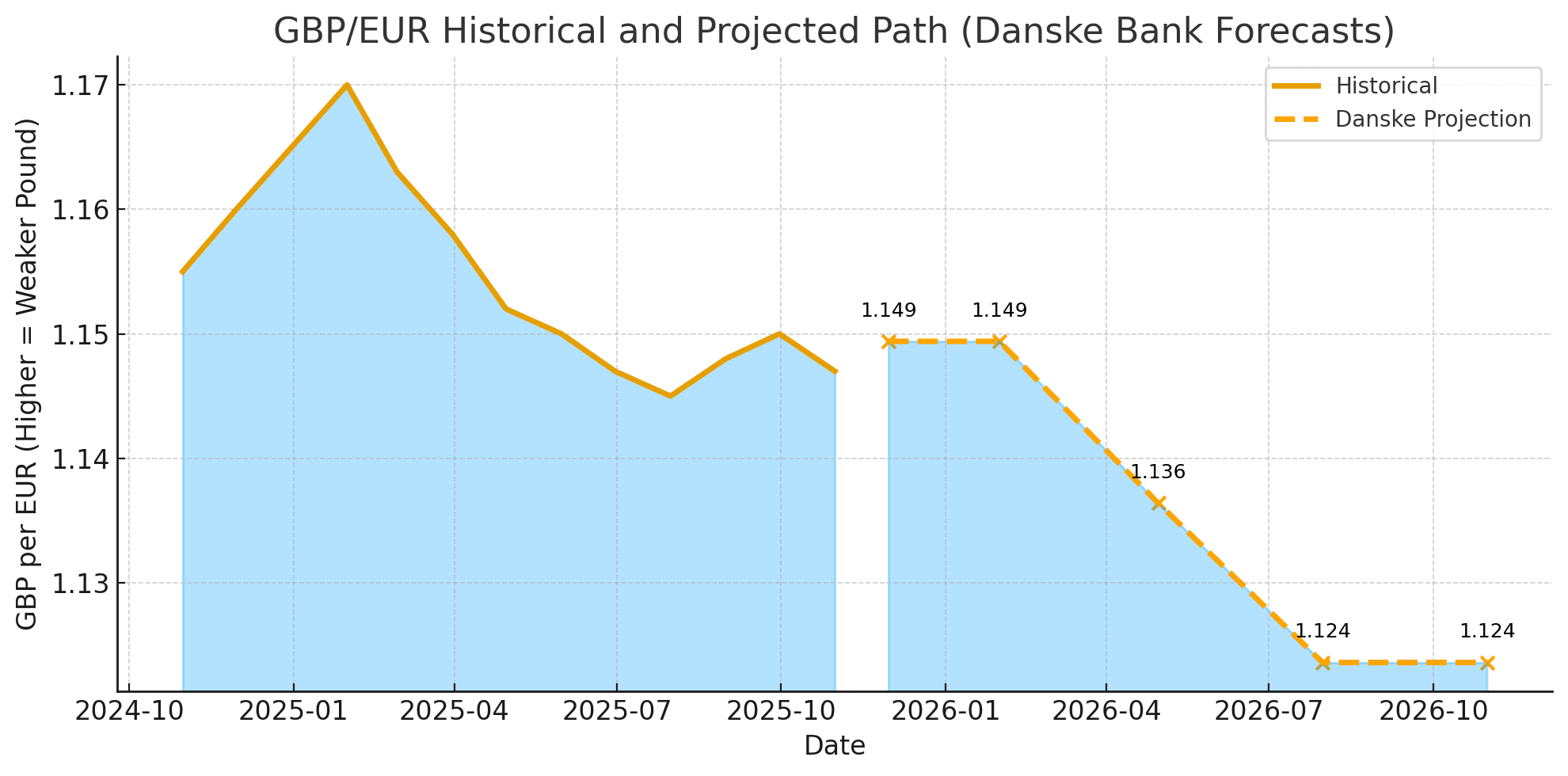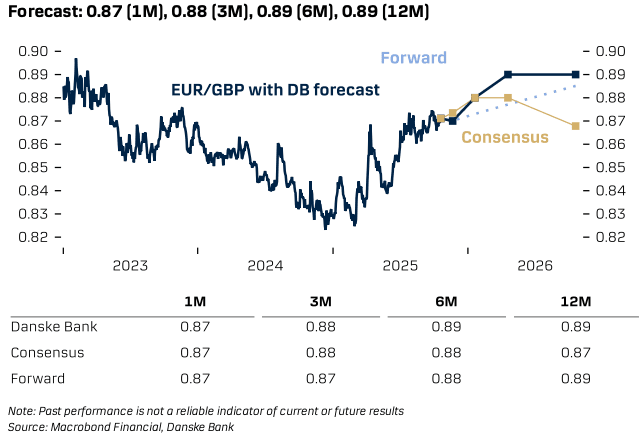
Sterling Faces Fresh Pressure as UK Growth Fades and Fiscal Tightening Looms, Says Danske Bank.
After a period of stability, the pound could be heading for renewed losses against the euro as the UK's economic engine splutters and the government prepares to tighten its belt, according to new projections from Danske Bank.
In a new forecast update, the bank describes Britain's growth performance as "to the weak side," noting that the economy’s modest second-quarter expansion was propped up by public-sector spending rather than private-sector momentum.
Retail sales data for the first half of the year confirmed the consumer's soft pulse, having been revised lower in September, confirming consumer resilience was previously overstated.
And, Danske warns that the upcoming November budget is likely to introduce "significant tightening of fiscal policy," a move that could sap demand just as the labour market cools. Private-sector wage growth continues to ease, reinforcing signs that the post-pandemic recovery cycle has lost traction.
The call comes as the pound to euro exchange rate grinds sideways along the 1.15 axis, amidst suggestions a lot of bad news is already in the price of the pound. But, another leg lower is in store, says Danske, as a combination of soft growth and stricter fiscal settings leave pound sterling vulnerable.
"Domestic factors and the relative growth outlook between the UK and the euro area are GBP negatives," analysts write, adding that divergence in fiscal paths will further tilt the balance against the pound.
The warning is a clear call to those with euro payments to take action and put in place strategies to minimise risks and take advantage of beneficial moves (speak to one of our FX dealers on WhatsApp for a no-obligation chat).
Bigger downside risks come in the event of a major global market selloff. This is because the UK's persistent current-account deficit remains a key weak point in the currency’s foundations.
Danske cautions that when global investors turn risk-averse, the flow of foreign capital needed to finance that deficit tends to shrink, amplifying pressure on sterling.
"A global investment environment characterised by elevated uncertainty," it says, is likely to favour the euro in the months ahead.
Valuation and positioning are headwinds.
Market positioning data suggest no major speculative bets on either side, which Danske interprets as a sign that traders are waiting for the next catalyst. However, that neutrality could quickly dissolve if focus returns to the UK’s fragile fiscal position or if risk appetite sours globally.
The bank expects the euro to gain further ground, forecasting EUR/GBP at 0.87 in one month, 0.88 in three months, and 0.89 within a year, implying a slide in sterling from roughly €1.15 to about €1.12 by mid-2026.

